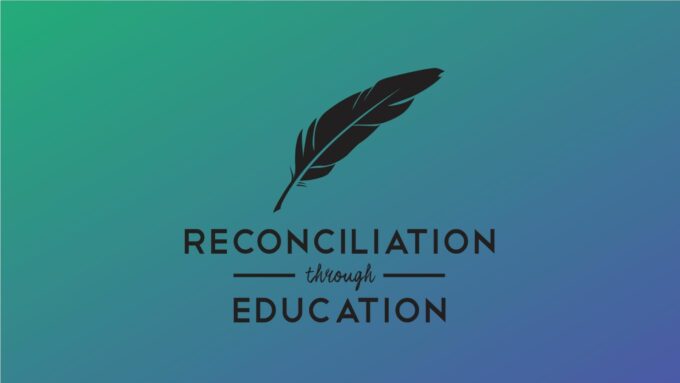Reconciliation means closing the gap between Indigenous and non-Indigenous learners
British Columbia is one of the most diverse province in the country when it comes to Indigenous culture, language and peoples. Douglas Students’ Union, partnered with our DSU Indigenous Students’ Collective, are passionate about bringing about a culture of reconciliation to Douglas College through sharing stories, myth busting, and education. We hope to make positive change in how British Columbians, and Canadians in general, interact with Indigenous people and culture with this campaign.

Goals:
- To educate students, staff, faculty and administrators of Douglas College about the Truth and Reconciliation Commission and the asks of Indigenous people in Canada
- Break down the barriers that restrict indigenous learners from accessing post-secondary education
- To promote positive interactions between Indigenous students, staff and faculty and the greater post-secondary community through story-telling, culture sharing, and myth busting
- To call on the provincial government to implement the recommendations made by the Truth and Reconciliation Commission
Background
Indigenous students face issues with education attainment and participation in post-secondary education across Canada. Indigenous post-secondary attainment is not only an education issue, but has larger consequences for income inequality and patterns of chronic unemployment.
Education Attainment Levels in Canada
In recent years, despite the increasing proportion of Indigenous people with university degrees, the attainment gap with non-Indigenous people has been widening, not shrinking. The proportion of Indigenous people who have a university degree has more than quadrupled compared to 25 years ago, yet the gap between Indigenous and non-Indigenous people has more than doubled over the same period. These disparities show that there is still an issue with attainment and access to post-secondary education for Indigenous peoples in Canada.
Unemployment Based on Attainment Levels
The level of education attainment impacts employment. According to the 2016 Census, across Canada, unemployment rates decrease as educational attainment increases, particularly for Indigenous people:
Many of the disadvantages facing Indigenous peoples such as unemployment and lower incomes can be traced back to the gap in educational attainment between Indigenous and non-Indigenous people. In order for true reconciliation to be achieved, the government needs to take steps to reducing the attainment gap.
TRC Recommendations for Reconciliation Through Education
The Truth and Reconciliation Commission’s recommendations for post-secondary education focus on providing necessary funding to educate teachers on how to integrate Indigenous knowledge and teaching methods in the classroom. Education needs to be a top priority in the federal and provincial reconciliation framework. Investing in Indigenous education is a necessary step towards reconciliation and provides a pathway to stronger economic stability and reducing income inequality.
Join our campaign to make reconciliation through education a top priority for the BC government.

Progress
Orange Shirt Day!
Every Child Matters!
Wear orange on September 30th in honor and respect of Residential School survivors and the children who died while in Residential Schools.
Follow social media accounts:
@decolonizemyself
@seedingsovreighty
Learn about the history. We've compiled a list of resources for you through the link here!
Orange Shirt Day – Every Child Matters arrow_forward
